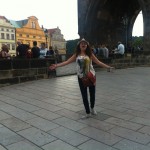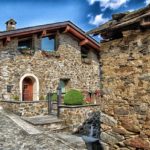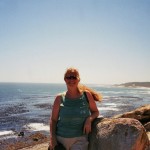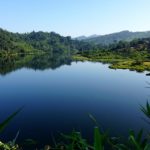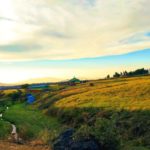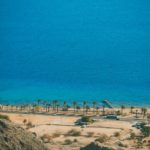Was I Too Modern for an Ancient Village in Central Iran?
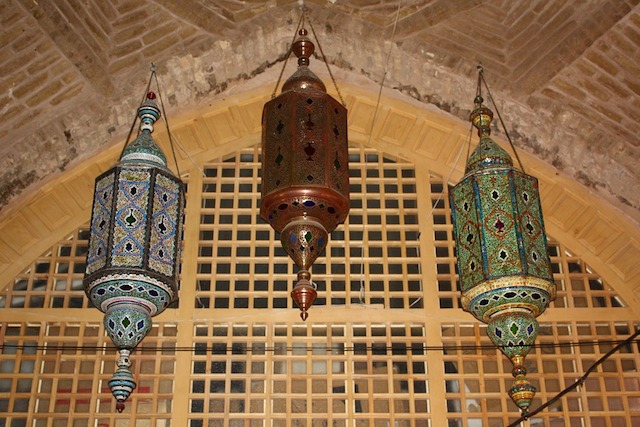
 The day before Ramadan, my father arranged for his work driver, Mr. Zand, to take us to Abyaneh, an historic village in central Iran. He planned this to stop me from going there with a man, a childhood friend, who had recently expressed deeper-than-friendship feelings for me. As far as dad is concerned, no one is good enough for his daughter.
The day before Ramadan, my father arranged for his work driver, Mr. Zand, to take us to Abyaneh, an historic village in central Iran. He planned this to stop me from going there with a man, a childhood friend, who had recently expressed deeper-than-friendship feelings for me. As far as dad is concerned, no one is good enough for his daughter.
By 6:10 AM, Mr. Zand, who has an unruly passion for speeding, picked us up. Sans coffee, my best attempt at politeness was a quick hello and a little smile. My mother, Ms. Manners though, still did her pleasantries, which we call taarof.
“We’ll be bothering you the whole day today, Mr. Zand,” she said.
“Oh please, ma’am. It’s no trouble at all.“
For Iranians, language is a dance of little formalities that roll off the tongue and color the culture.
As soon as we reached the highway, Mr. Zand started speeding to make up for our 10-minute delay.
It was the time of year when by noon, even air molecules melt and bend with heat. During the two months of my stay there, I learned to predict the weather by how the morning air felt. That morning’s breeze left me with some hope for our trip.
For Iranians, language is a dance of little formalities that roll off the tongue and color the culture.
We drove to Qom, the most religious city in Iran. It is so religious that women are required to wear a chador (a cloak that covers one from head to toe) any time they step onto the street. Mr. Zand dropped my mom and me off at a diner just outside the city since neither of us was wearing a chador. He would return after taking my dad to work. Before getting out of the car, my dad warned me to fix my scarf and cover all of my hair. We ate breakfast and then left for Abyaneh.
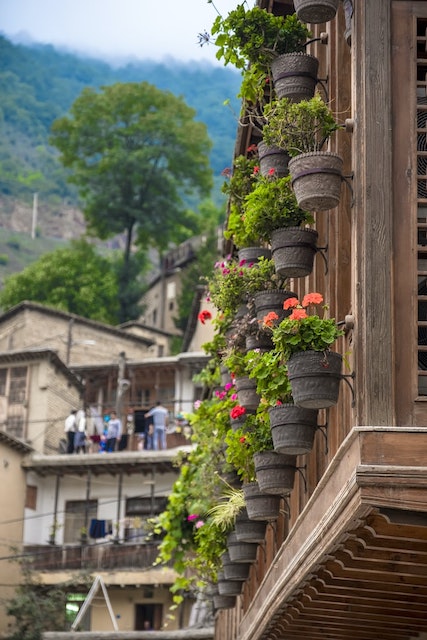
Abyaneh is a mountainous village in the desert. An hour into our drive, the scenery started to change into hills dotted by desert vegetation. In Abyaneh, the earth has folded on itself to create knolls reminiscent of nude figures. We passed the salt lake, which has become a white ribbon due to receding water. Warm air gusted in through the driver’s open window. The heat brought abundant peace, a welcome respite from Tehran’s high decibel noise pollution.
To conserve gas, Mr. Zand kept the air conditioner off. At 9 AM, it must have been 80 degrees. With certainty, in his baritone voice, he informed us: “Today is a good day. It’s still cool. Typically from noon until about 5 PM, people don’t drive.” I felt oddly responsible for putting him through the hardship of this arduous drive and worried that his car might liquefy, but I only had limited time in Iran.
Was I Too Modern for an Ancient Village in Central Iran?
As we made the turn to head east, we passed a few farms–including pomegranate and melon farms. Mom said that melons taste sweeter in more arid environments, where there’s less water. Once the road signs for Abyaneh appeared, Mr. Zand told us: “Get ready. We are heading into the belly of the mountain now.” I perked up as the ascent began.
The scenery changed to one that boasted trees, which helped cool the singeing air a little. As soon as Mom commented in her always-look-on-the-bright-side, “It’s much cooler here,” Mr. Zand draped his arm out of the car languorously. Then he started pointing out the different types of trees.
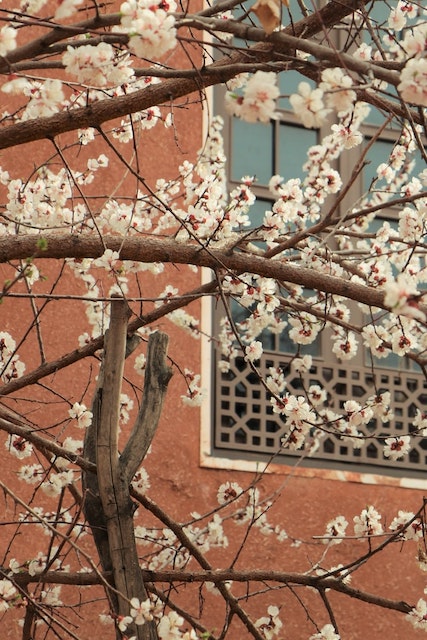
Passing walnut trees, studded with green fruit, he stopped the car and got out to pick some. I, unwilling to forgo any new experience, followed. Seeing me struggle to reach the fruits, he pulled down one of the branches and held it so that I could grab onto the fruits.
Since arriving in Iran, some of my opinions had changed. Instead of nude photography, now women’s chadors, worn around their waist, attracted me.
A few minutes later, we got back on the road. Mr. Zand gave me his share of walnuts. “Oh thank you, Mr. Zand. But you should take some home for the kids. Please. I insist.” He took two, opened the glove compartment, and instead of putting them in, removed a pocketknife. Then, in the Iranian multitask-while-you-drive style, he cut the walnuts and handed them to us. I had to silence my thoughts about the cleanliness of his knife so we could all enjoy the fresh, soft, white walnuts, inside their green cocoons.
Authoritatively, he claimed: “You know you are not supposed to sleep under a walnut tree. It gives off carbon monoxide and can kill you.” In all of my research, I still have yet to find that fact.
We arrived at the crimson village, Abyaneh, called Vionah (land of willows) by the locals, at noon. It was due to its color that I knew we had reached our destination. Clay houses, born of earth, pleated the mountain skirt red, which were interrupted by curtains of willows. The rooftop of one acted as the courtyard of another.
I was excited to see the women’s costumes I’d read about.
Mr. Zand told us to meet him at the entrance of the village. Mom and I stepped into the feverish air and started walking through the rippled narrow roads. The ground heaved heat. I ran my hand on one of the walls just to feel the rough texture. I saw that the terrain twists, turns, dives and rises. In a distance, we finally spotted three women.
Since arriving in Iran, some of my opinions had changed. Instead of nude photography, now women’s chadors, worn around their waist, attracted me. Mr. Zand was right. Women here were robust. He called them short and plump. They all wore the same floral scarf: white with hot pink flowers, which reach their waist. They all wear tanban, pleated calf-length pants that resemble skirts.
One of them looked at me, “You cover that neck of yours from all the men’s eyes if you want me to even talk to you.”
Shops, like colorful ornaments were scattered throughout the red background. One woman invited me into her little store to show me that she carried everything, “even English books about Abyaneh.” When I asked permission to take her photograph, she said, “Why not? If I can’t live in America at least let my picture go there.”
The history of this village may date to 6,000 years ago. People speak an ancient Persian language: Parthian Pahlavi, but then switch to Farsi with tourists. Those loamy houses were built to become stronger over time with the elements, like rain.
My mother and I have different interests. She came alive when we walked in the garden lanes that probably remind her of her own childhood. My interests lie in architecture. I lit up when I saw mosques, shrines, and lattice windows. Or when I learned that the delicate woodcarvings on the Great Mosque’s door made it so desirable an object that it was stolen. After its recovery, a fence was built in front of it and caged it like a rare bird. I also felt proud when we walked under what used to be a Zoroastrian fire temple. The village had relics from multiple Persian dynasties.
Mr. Zand kept the promise he made to my dad to look after us, because everywhere we go, in that maze of alleys, we somehow “ran into him.” I wished he would nap in his car instead, so he wouldn’t doze off on the way back as he did on the way in. I had to spend most of the drive watching him and making up questions as soon as his lids started drooping. Occasionally I elbowed my mom for help. She kept offering him fruit and juice.
Was I Too Modern for an Ancient Village in Central Iran?
To find our way to the car, mom and I stopped to ask directions from a group of women. One of them looked at me, “You cover that neck of yours from all the men’s eyes if you want me to even talk to you.”
I did.
“Not from me.” She protested. “Who is this husband of yours who lets you expose your neck like that?”
“I don’t have a husband.”
“No husband? Well. Then we should find you one.”
Not knowing what to say, I answered jokingly: “Only if he’s willing to leave the country with me.”
One old man sitting close by chimed in about this eligible bachelor, “Ah no. I’m pretty sure he wouldn’t go.”
Still she pointed to him. He was her candidate?
As I thought of the right way to turn down the offer, he spoke up again, “Nah. I have no use for her.”
Did a villager in Abyaneh just reject me? I wanted to start presenting my accolades. I have a doctorate, a house, a car, plus I exercise daily, I almost said. But, in reality, he had no use for those, either.
Where was my father then to see that this time his daughter was not good enough?
Photo credits for Was I Too Modern for an Ancient Village in Central Iran? by Unsplash.


